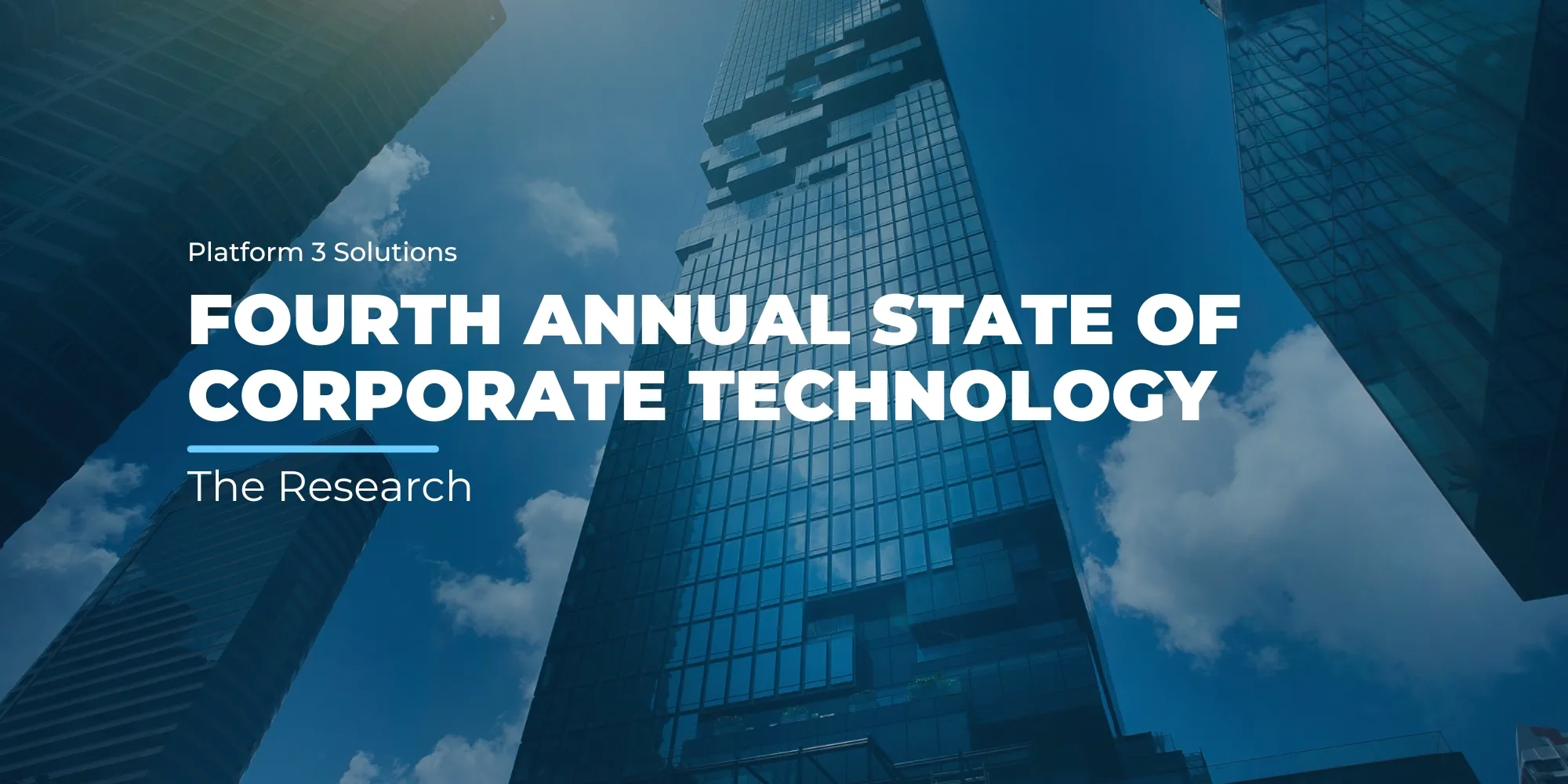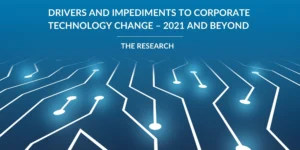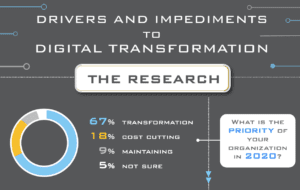In this comprehensive research white paper, we delve deep into the current state of corporate technology. Our aim is to shed light on this ever-evolving landscape, highlighting trends, challenges, and opportunities that organizations encounter in the digital era. With insights drawn from over four years of research, involving a diverse pool of more than 100,000 participants, we embark on a journey to explore rapid advancements in technology, their profound impact on businesses, and strategies corporations employ to maintain their competitive edge.
Emerging Trends and Noteworthy Observations in Corporate Technology
- Embracing Technological Advancements: The corporate sector finds itself at the crossroads of innovation, with artificial intelligence, machine learning, big data analytics, IoT, blockchain, cloud computing, and augmented reality ushering in transformative changes. These technological strides have ushered in a new era filled with potential, yet laden with unique challenges.
- Navigating the Data Deluge: We live in an age where data is often likened to the new oil. The challenge lies in refining and harnessing ongoing deluges of data to unlock inherent value. Much like oil, data must be processed and directed to yield the desired outcomes.
- Pursuing Efficiency and Cost Optimization: While technology continues to evolve, baseline systems continually offer improved performance and capacity at reduced costs. However, in this quest for efficiency, organizations must grapple with the growing complexity of tasks, expanding workforces, and escalating data volumes.
- Ensuring Data Security and Privacy: As technology deepens its roots in our daily lives, concerns surrounding data security and privacy have become paramount. Within this domain, we assess the state of data security in corporate settings, underscoring the critical role of robust cybersecurity measures.
- Technology’s Impact on the Workforce: The relentless march of technology and data necessitates a corresponding adaptability in the workforce. Organizations must cultivate an environment where employees can keep pace with evolving demands.
- Shift from Capital to Operational Expenditure: The shifting tides of technology budget allocations, moving from capital expenditure (CapEx) to operational expenditure (OpEx), are prompting a growing number of entities to gravitate toward cloud solutions. This shift is primarily driven by the challenges associated with procuring on-premise technology.
- Legacy Corporate Technology: Persistent but Diminishing: Despite the ever-evolving IT landscape, older technology systems persist in many organizations. While some still view them as significant, a notable shift is occurring as organizations increasingly seek to reduce their reliance on legacy technology.
- Data Retirement Strategies: Surprisingly, approximately one-third of organizations overlook the critical aspect of data retirement when migrating to the cloud. This oversight results in inefficiencies and increased costs, underscoring the importance of a well-thought-out cloud migration strategy.
- Reasons for Holding onto Legacy Corporate Technology: The primary reasons for retaining old technology, such as a lack of a compelling business case and low management priority, remain largely unchanged. However, there is a noticeable uptick in uncertainty about these reasons.
- Vendor Relationships Under Scrutiny: Vendor relationships are central to technology adoption. Oracle consistently occupies the top spot among vendors that organizations seek to reduce spending with. Notably, SAP and IBM have witnessed significant increases in this regard.
- Cloud Utilization and Preferences: Among cloud platforms, Azure enjoys the highest utilization, followed by Amazon and Google. Nevertheless, Google’s cloud offerings have experienced a noticeable decline over the past three years.
- The Cloud’s Hype and Reality: The verdict on the cloud’s performance remains polarized. Approximately 25% express strong agreement that it has lived up to its hype, while 15% vehemently disagree.
- AI and ML: Early Adoption: Artificial intelligence and machine learning are still in their nascent stages of adoption, with many organizations either investigating their potential or lacking ongoing projects.
- Open Source: Beyond Cost Considerations: Open-source technologies are thriving, driven not only by cost savings but also by factors such as innovation and improved terms and conditions.
- Embracing a “Cloud-First” Perspective: A significant majority of organizations are embracing a “cloud-first” perspective in their future projects, with Azure emerging as the preferred cloud platform.
This research paper provides an insightful exploration of the corporate technology landscape, unveiling challenges, trends, and strategies that organizations navigate. It underscores the imperative for organizations to adapt to evolving technology trends, optimize their data strategies, and carefully consider their cloud adoption and migration approaches. The findings offer a comprehensive understanding of the dynamic nature of corporate technology in the digital age.
To read all results and analysis contained within this research paper, please continue here to download and view the complete report.
Special thanks to:

Tom Rieger, is the Principal Solution Engineer at EnterpriseDB (EDB).
Thank you for the consistent support and guidance throughout the process of survey and research
Platform 3 Solutions is a global leader in end-to-end legacy application migration and retirement solutions. Platform 3 empowers secure and seamless transitions of data and applications, eliminates technology debt, and delivers the ROI to invest in technology modernization.



